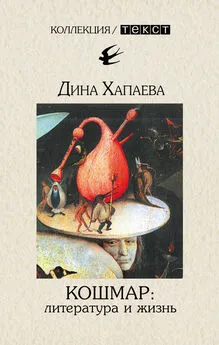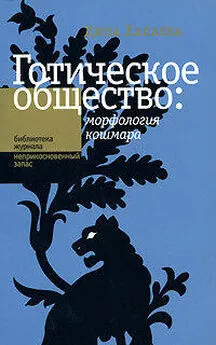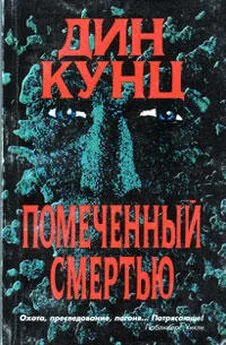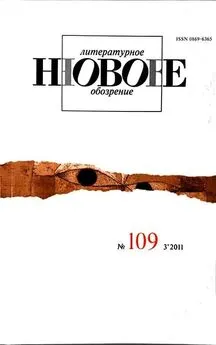Дина Хапаева - Занимательная смерть. Развлечения эпохи постгуманизма
- Название:Занимательная смерть. Развлечения эпохи постгуманизма
- Автор:
- Жанр:
- Издательство:Новое литературное обозрение
- Год:2020
- Город:Москва
- ISBN:978-5-4448-1355-3
- Рейтинг:
- Избранное:Добавить в избранное
-
Отзывы:
-
Ваша оценка:
Дина Хапаева - Занимательная смерть. Развлечения эпохи постгуманизма краткое содержание
Занимательная смерть. Развлечения эпохи постгуманизма - читать онлайн бесплатно ознакомительный отрывок
Интервал:
Закладка:
Dean C. J. The Fragility of Empathy after the Holocaust. Ithaca: Cornell University Press, 2005.
Derrida J. Specters of Marx: The State of the Debt, the Work of Mourning, and the New International / Trans. by P. Kamuf. London: Routledge, 1994.
Derrida J. The Animal That Therefore I Am / Trans. by D. Wills. New York: Fordham University Press, 2008.
Derrida J. The Law of Genre / Trans. by A. Ronell // Critical Inquiry. 1980. 7, no. 1. P. 55–81.
Derrida J. Violence Against Animals // For What Tomorrow… A Dialogue / Ed. by J. Derrida and É. Roudinesco. Trans. by J. Fort. Stanford, CA: Stanford University Press, 2004.
Dosse F. History of Structuralism: The Rising Sign, 1945–1966. Minneapolis: University of Minnesota Press, 1997.
Durkin K. F. Death, Dying, and the Dead in Popular Culture // Handbook of Death & Dying / Ed. by Clifton D. Bryant. Thousand Oaks, CA: Sage Publications, 2003. 1:43–49.
Elias N. The Loneliness of the Dying (1985). London: Bloomsbury Publishing USA, 2001.
Ellis B. Safe Spooks: New Halloween Traditions in Response to Sadism Legends // Halloween and Other Festivals of Death and Life / Ed. by J. Santino. Knoxville: University of Tennessee Press, 1994. P. 22–44.
Esposito К. Bios: Biopolitics and Philosophy (Posthumanities). Minneapolis: University of Minnesota Press, 2008.
Evans C. Fashion at the Edge: Spectacle, Modernity and Deathliness. New Haven: Yale University Press, 2003.
Faust D. G. This Republic of Suffering: Death and the American Civil War. New York: Vintage Books, 2009.
Ferguson Ch. J., Rueda S. M., Cruz A. M., Ferguson D. E., Fritz S., Smith Sh. M. Violent Video Games and Aggression: Causal Relationship or Byproduct of Family Violence and Intrinsic Violence Motivation? // Criminal Justice and Behavior. 2008. 35, no. 3 (March). P. 311–332.
Ferry L., Renaut A. La pensée 68: Essai sur l’anti-humanisme contemporain. Paris: Gallimard, 1985.
Foley M., Lennon J. J. JFK and Dark Tourism: A Fascination with Assassination // International Journal of Heritage Studies 2. 1996. P. 198–211.
Foltyn J. L. Dead Famous and Dead Sexy: Popular Culture, Forensics, and the Rise of the Corpse // Mortality. 2008. 13, no. 2. P. 153–173.
Foucault M. Archeology of Knowledge / Trans. by R. Sawyer. New York: Vintage Books, 2010.
Foucault M. The Order of Things. New York: Vintage Books, 1994.
Freedman J. L. Media Violence and Its Effect on Aggression: Assessing the Scientific Evidence. Toronto: University of Toronto Press, 2002.
Friedländer S. Reflections of Nazism: An Essay on Kitsch and Death. Bloomington: Indiana University Press, 1993.
Fukuyama F. Our Posthuman Future: Consequences of the Biotechnology Revolution. New York: Farrar, Straus & Giroux, 2002.
Furet F. The Passing of an Illusion: The Idea of Communism in the Twentieth Century. Chicago: University of Chicago Press, 2000.
Gabriel S., Young A. F. Becoming a Vampire Without Being Bitten: The Narrative Collective-Assimilation Hypothesis // Psychological Science. 2011. No. 22. P. 990–994.
Gallagher C. The Body Economic: Life, Death, and Sensation in Political Economy and the Victorian Novel. Princeton: Princeton University Press, 2008.
Garces-Foley K. Death and Religion in a Changing World. Armonk, NY: M. E. Sharpe, 2006.
Garis H. de. Multis and Monos: What the Multicultured Can Teach the Monocultured: Towards the Creation of a Global State. Palm Springs, CA: ETC Publications, 2010.
Garrett P. K. Gothic Reflections: Narrative Force in Nineteenth-Century Fiction. Ithaca: Cornell University Press, 2003.
Geary P. J. Living with the Dead in the Middle Ages. Ithaca: Cornell University Press, 1994.
Gerbner G., Gross L., Morgan M., Signorielli N. Living with Television: The Dynamic of the Cultivation Process // Perspectives on Media Effects / Ed. by J. Bryan and D. Zillman. Hillsdale, NJ: Lawrence Erlbaum Associates, 1986. P. 17–40.
Gierzynski A. Harry Potter and the Millennials: Research Methods and the Politics of the Muggle Generation. Baltimore: Johns Hopkins University Press, 2013.
Gilmore D. Monsters: Evil Beings, Mythical Beasts, and All Manners of Imaginary Terrors. Philadelphia: University of Pennsylvania Press, 2002.
Girard R. The Scapegoat / Trans. by Y. Freccero. Baltimore: Johns Hopkins University Press, 1986.
Goldberg V. Death Takes a Holiday, Sort Of // Why We Watch / Ed. by J. Goldstein. New York: Oxford University Press, 1998. P. 27–52.
Good G. Humanism Betrayed: Theory, Ideology and Culture in the Contemporary University. Montreal: McGill-Queen’s University Press, 2001.
Goodrick-Clarke N. The Occult Roots of Nazism. Wellingborough, Northamptonshire, UK: Aquarian Press, 1985.
Gorer G. The Pornography of Death // Encounter. October 1955. P. 49–52.
Gothic Horror: A Guide for Students and Readers / Ed. by C. Bloom. 2nd ed. Basingstoke: Palgrave MacMillan, 2007.
Gottfried R. S. The Black Death. New York: Simon & Schuster, 2010.
Graham A. Roland Barthes. London: Routledge, 2003.
Granger J. How Harry Cast His Spell: The Meaning Behind the Mania for J. K. Rowling’s Bestselling Books. Carol Stream, IL: Tyndale House, 2014.
Granger J. Unlocking Harry Potter: Five Keys for the Serious Reader. Cheshire: Zossima Press, 2007.
Greek C., Picart C. J. The Compulsion of Real/Reel Serial Killers And Vampires: Toward A Gothic Criminology // Journal of Criminal Justice and Popular Culture. 2003. 10, no. 1. P. 39–68.
Grimes R. L. Deeply into the Bone: Re-inventing Rites of Passage. Berkeley: University of California Press, 2000.
Grixti J. Terrors of Uncertainty: The Cultural Contexts of Horror Fiction. London: Routledge, 1989.
Gros F. Foucault face à son œuvre // Lectures de Michel Foucault, vol. 3. Lyon: ENS Éditions, 2003. P. 93–101.
Gumbrecht H. U. Atmosphere, Mood, Stimmung: On A Hidden Potential of Literature / Trans. E. Butler. Stanford, CA: Stanford University Press, 2012.
Gurdon M. C. Darkness Too Visible // Wall Street Journal. 2011. June 4.
Halliwell M., Mousley A. Critical Humanisms: Humanist/Anti-Humanist Dialogues. Edinburgh: Edinburgh University Press, 2003.
Han B. L’ontologie manquée de Michel Foucault: Entre l’historique et le transcendental. Paris: Editions Jérôme Millon, 1998.
Haraway D. J. Cyborg Manifesto: Science, Technology, and Socialist-Feminism in the Twentieth Century // Simians, Cyborgs and Women: The Reinvention of Nature. New York: Routledge, 1991. P. 149–181.
Haraway D. J., Nichols Th. How Like a Leaf: An Interview with Thyrza Nichols Goodeve. New York: Psychology Press, 2000.
Harry Potter’s World Wide Influence / Patterson D., ed. Cambridge: Cambridge Scholars Publishing, 2009.
Hayles K., Luhmann N. Theory of a Different Order: A Conversation with Katherine Hayles and Niklas Luhmann // Observing Complexity: Systems Theory and Postmodernity / Ed. by C. Wolfe, W. Rasch. Minneapolis: University of Minnesota Press, 2000.
Heessels M. Every Funeral Unique in (Y)our Way! Professionals Propagating Cremation Rituals // Emotion, Identity, and Death: Mortality across Disciplines / Ed. by D. J. Davies, Ch.-W. Park. Burlington: Ashgate, 2012. P. 125–145.
Hénaff M. Claude Lévi-Strauss and the Making of Structural Anthropology. Minneapolis: University of Minnesota Press, 1998.
Hertz R. Death and the Right Hand (1907) / Trans. by R. and C. Needham. Glencoe, IL: The Free Press, 1960.
Herwig H. H. The Cult of Heroic Death in Nazi Architecture // War Memory and Popular Culture: Essays on Modes of Remembrance and Commemoration / Ed. by M. Keren and H. H. Herwig. Jefferson, NC: McFarland, 2009.
Hollinger V. Apocalypse Coma // Edging into the Future: Science Fiction and Contemporary Cultural Transformation / Ed. by V. Hollinger, J. Gordon. Philadelphia: University of Pennsylvania Press, 2002.
Horkheimer M., Adorno Th. W. The Culture Industry: Enlightenment as Mass Deception // Dialectic of Enlightenment. New York: Herder and Herder, 1972.
Housel R. The «Real» Danger: Fact vs. Fiction for the Girl Audience // Twilight and Philosophy: Vampires, Vegetarians, and the Pursuit of Immortality / Ed. by R. Housel, J. J. Wisnewski, W. Irwin. Hoboken, NJ: John Wiley & Sons, 2009. P. 177–192.
Howart G. Death and Dying: A Sociological Introduction. Cambridge: Polity, 2007.
Huizinga J. The Autumn of the Middle Ages / Trans. by R. J. Payton, U. Mammitzsch. Chicago: University of Chicago Press, 1996.
Huntington R., Metcalf P. Celebrations of Death: The Anthropology of Mortuary Ritual. Cambridge: Cambridge University Press, 1979.
Hutton R. The Stations of the Sun: A History of the Ritual Year in Britain. Oxford: Oxford University Press, 1996.
Huxley J. Transhumanism // New Bottles for New Wine. London: Chatto & Windus, 1957. P. 13–17.
Ingraham C. What Is Posthumanism? // Future Anterior. 2010. 7, no. 1 (Summer). P. 96–103.
Jameson F. Postmodernism or, The Cultural Logic of Late Capitalism. London: Verso, 1991.
Jantzen G. M. Foundations of Violence. New York: Taylor & Francis, 2008.
Jay M. Songs of Experience: Modern American and European Variations on a Universal Theme. Berkeley: University of California Press, 2005.
Jenkins C. Life Extension, Immortality and the Patient Voice // The Power of Death: Contemporary Reflections on Death in Western Society / Ed. by M.-J. Blanco and R. Vidal. New York: Berghahn Books, 2014. P. 13–22.
Jenkins Ph. Using Murder: The Social Construction of Serial Homicide. Chicago: Aldine Transaction, 1994.
Jones S. Torture Porn: Popular Horror after Saw. New York: Palgrave Macmillan, 2013.
Judt T. Past Imperfect: French Intellectuals, 1944–1956. Oakland: University of California Press, 1994.
Judt T. Postwar: A History of Europe Since 1945. London: Penguin Books, 2006.
Kearl M. C. What Death Means // Endings: A Sociology of Death and Dying. Oxford: Oxford University Press, 1989. P. 25–42.
Kearney R. Strangers, Gods, and Monsters: Interpreting Otherness. London: Routledge, 2003.
Kellehar A. A Social History of Dying. Cambridge: Cambridge University Press, 2007.
Kelly C. St Petersburg: Shadows of the Past. New Haven: Yale University Press, 2014.
Kern E. M. The Wisdom of Harry Potter: What Our Favorite Hero Teaches Us about Moral Choices. Amherst, NY: Prometheus, 2003.
Khapaeva D. Break of Language: A Russian French Comparison // Journal of Russian Communications. 2001. 4, nos. 1/2. P. 94–113.
Khapaeva D. Historical Memory in Post-Soviet Gothic Society // Social Research. 2009. 76, no. 1. P. 359–394.
Khapaeva D. Nightmare: From Literary Reality to Cultural Project / Trans. from Russian by R. Tweddle. Amsterdam: Brill, 2013.
Khapaeva D. Portrait critique de la Russie: Essais sur la société gothique / Trans. from Russian by N. Kehayan. La Tour d’Aigues: Éditions de l’Aube, 2012.
Khapaeva D. The International Vampire Boom and Post-Soviet Gothic Aesthetic // Gothic Topographies: Language, Nation Building and «Race» / Ed. by P. M. Mehtonen and M. Savolainen. London: Ashgate, 2013. P. 143–169.
Читать дальшеИнтервал:
Закладка:







